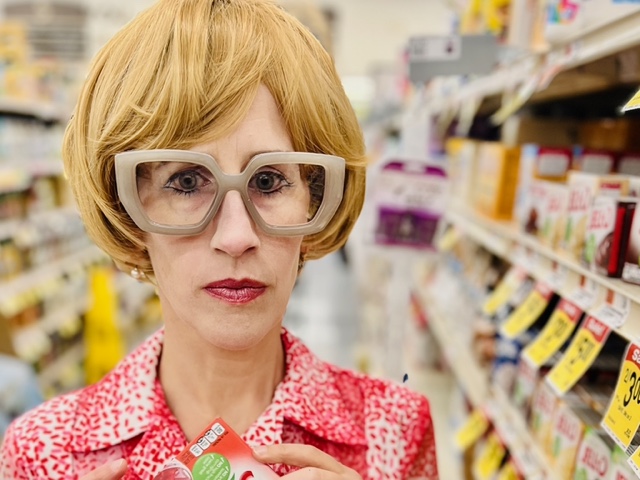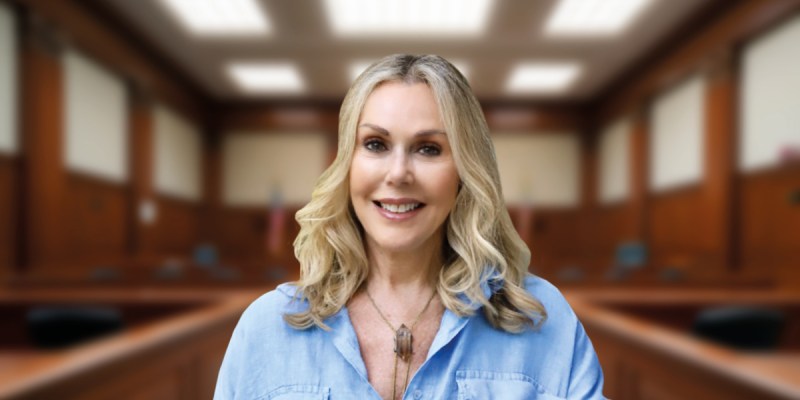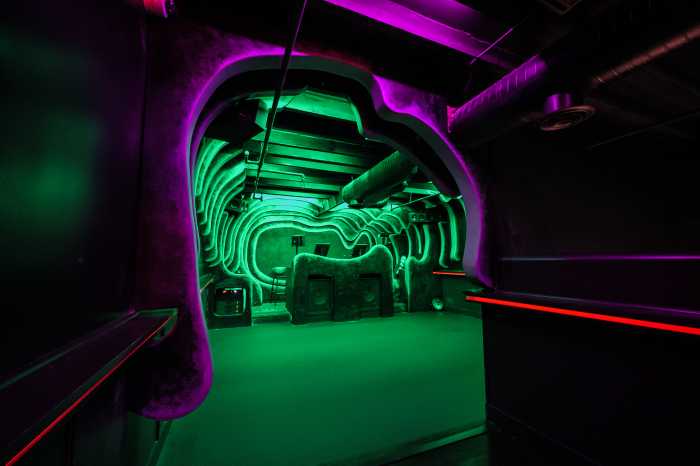Before 2014, Philadelphia actor, deviser and producer Sarah Sanford was a constant on local stages with self-created solo shows, events in tandem with Pig Iron Theatre Company, and for annual Fringe Festivals. A deep commitment to educating locals actors, raising her child and caring for an ailing mother in another state, however, kept Sanford away from devising new work and performing.
Now, Sanford returns to the stages of Christ Church Neighborhood House with ‘Love You Love You Love You’, a show inspired by her mother’s journey with Alzheimer’s.
In consideration of her renowned work in the past — Pig Iron shows such as ‘Shut Eye’, ‘Welcome to Yuba City’, the Obie-winning ‘Hell Meets Henry Halfway’, and her debut directorial dance-theater piece ‘Appetite’ to name a few – Sanford believes that everything begins with the body.
“My work always starts with a physical encounter connected to themes that drive each piece,” says Sanford. “Usually, the research centers on what the style of each piece is. And if it is a devised work, that style will affect my writing, and how it reaches the audience. The body is my source of creativity.”
Initially a dancer diving into physical theater while at Swarthmore College, Sanford discovered Paris’ Jacques Lecoq’s school, and became a student of clowning, masks and movement.

“Going forward from there, even if it was a scripted play, it had to start with the body.”
The body – how it fails us, how we navigate its frailties – is the heart of ‘Love You Love You Love You’.
“One of the driving impulses to make this piece was spending time with my mother’s dementia, my mother’s Alzheimer’s. Missing her as she goes through this felt very physical – a physical missing – as well knowing that cognitively something was happening where she was moving away from me,” Sanford explains.
‘Love You Love You Love You’ is shared with the strong connections that the actor-deviser feels to her own child, as well as her mom.
“The act of attempting to embody her, to move closer to maybe what she’s experiencing as the world around her – as her brain – became increasingly obscured is crucial. It’s been a physical process to venture into her world: How does my rhythm change. How does my voice change, or my gaze, or my breath, or the way I deal with other people change?”
Sanford states that though her mother’s personality and her heart are “very much still present,” the customary ways in which we deal with the world are just now beginning to slip away. In its place are freshly engaged rhythms and spirits that alter Sanford’s mother’s presence within the space that she takes up, but are no less formidable and identifiable.
A great portion of ‘Love You Love You Love You’ came together during the pandemic at a time when her mom lived closer to home.
“That was a particularly trying moment for my mom as she had just moved near me, and had to go into lockdown,” says Sanford. “We couldn’t see or spend time with her. She didn’t care for the new space, and moved back to her home in Connecticut. The experience of being close to my aging parent, then having to say goodbye to her knowing that this illness would progress made me come face-to-face more greatly with who she becoming. That all this would only intensify.”
The emotional baggage of the mother-and-daughter relationship, of grappling with dementia’s new physical and mental reality opened the door to Sanford’s portrayal in ‘Love You Love You Love You’.
“My mother has a huge heart, cares about other people at the expense of herself, was very present in my life and the life of my sister growing up and was a great listener,” Sanford says of her mom, who was an avid reader, teacher and library specialist at a public school in Connecticut.
“Since my mother was diagnosed with dementia – and anyone who has a loved one with a similar diagnosis will recognize this – you notice certain things slipping; finances, paying bills, a decreasing ability to stay on top of the things you need to get on, daily.”
Social isolation crept in, as did anxieties and certain comorbidities. Thinking of Sanford’s past, often-dreamlike, highly physicalized work, ‘Love You Love You Love You’ is, in no way, simply a reality-based portrayal of her mom’s condition. Sanford – with director Alex Tatarsky, a clown and performance artist – made her new work a study of rhythm and grace, a look at the pulse of a person going through the unknown, one’s sense of self and speech and movement
“I don’t come on stage and say that I am my mother, but am definitely interested in what happens to the room when someone with dementia is there,” says Sanford. “Does it make us uncomfortable? What parts of that person can reach across to the audience, and how do we interact with those parts?”
Sarah Sanford’s ‘Love You Love You Love You’ hits the stage at the Christ Church Neighborhood House, 20 N American Street from Sept. 20 to 29. For more information, visit neighborhood-house.com






























